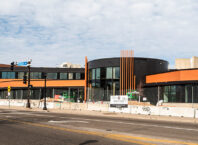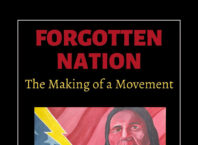By Lee Egerstrom
From winning state bonding funds for redesign and improvements for the Minneapolis American Indian Center to preserving funding for Indian education programs, the newly-formed Native Caucus in the Minnesota Legislature is showing again there is strength in numbers.
Voters in the last election added two more Native Americans to the Minnesota House of Representatives, making a small Native Caucus of four women. They, in turn, joined with House and Senate members from Hispanic/Latino, Hmong and other Asian, Somali and Black American heritages to form a 14-member People of Color & Indigenous (POCI) Caucus to fight collaboratively for racial and economic equality issues during the 2017 legislative session.
New to the Legislature are Reps. Jamie Becker-Finn, of Roseville (District 42B); and Mary Kunesh-Podein, New Brighton (41B). They joined Reps. Peggy Flanagan, St. Louis Park (46A), who won a special election in 2015 and a full term in November; and three-term veteran Susan Allen, of Minneapolis (62B).
All Native and POCI members are DFLers. That means they are minority individuals combining talents within the minority party of both houses of the Minnesota Legislature. It also means they needed to work offensively and defensively with Republican lawmakers and committee chairs to seek new programs and funds while preserving programs and funds already serving their constituents and communities.
“It is hard for me to imagine doing this job without the Native Caucus and the POCI caucus,” said new House member Becker-Finn. “I think there is strength in numbers, but it also gave me strength as an individual to look across the House floor and see Representative Flanagan and know that I was not alone in what I was fighting for.”
Reaching out and banding together worked, at least in the eyes of Mary LaGarde, executive director of the Minneapolis American Indian Center. The caucus coauthored and supported legislative efforts for the Center’s $155,000 renovation pre-design funding that was led by Rep. Karen Clark (62A), who represents that area of south Minneapolis.
LaGarde said design work and mechanical upgrade plans will be prepared by late fall at the earliest. Ever a diplomat, LaGarde said she was pleased that Gov. Mark Dayton, a DFLer, included the Center’s funding in his state bonding bill recommendations, and that Clark and Allen were able to get Republican legislative leaders to study and accept the proposal. Key among them was Rep. Dean Urdahl (18A), R-Grove City and the House Capital Investment chair.
Given that there are now enough Native heritage members of the Legislature to actually work as a caucus, The Circle asked the four lawmakers to assess what was accomplished, what wasn’t, and how working together in Native and POCI (pronounced “posse”) caucuses worked.
Allen provided a long list of bills either passed or incorporated into larger, omnibus legislation from the state’s Revisor of Statutes Office that included of Natural Resources as part of an agreement in which the Leech Lake Band of Ojibwe will acquire 45 acres of aquatic and wildlife habitat at an historic meeting place between explorer Henry Schoolcraft and Anishinabe people. The land will be open to the public and not put in federal trust through the Bureau of Indian Affairs.
Of course, nearly everything else that passed the Legislature and was signed into law will have an impact on Minnesota Indian Country along with all other communities within the state.
For Allen, the “dean” of the Native Caucus, there was as much frustration over what wasn’t done as there was satisfaction over what she deemed to be accomplishments.
The Legislature mostly ignored the chaos in Washington and how federal programs in transition might come back and harm state and local governments and their shared programs, she said. As a result, she added, the Legislature “squandered most of the $1.65 billion (state) budget surplus by redistributing it to the wealthy and further widening inequality between the wealthy and people struggling to secure and maintain regular employment that pays a living wage.”
The two caucuses working together did hold off legislative efforts to prohibit local governments, such as the city of Minneapolis, from addressing economic inequality issues such as raising minimum wages. They also were instrumental in preventing legislative efforts aimed at disallowing citizen protests.
The strength in numbers didn’t just come from the members of the Legislature. It was also reflected by citizens who came to support the caucus members. For instance, a House debate on an oil pipeline amendment drew Native people and environmentalist allies, “and was the most powerful day of my legislative career thus far,” said Becker-Finn.
Kunesh-Podein, meanwhile, said being able to tell personal stories from family experiences helped other lawmakers grasp how public policy plays out in human terms. When funds for American Indian students and tribal schools were being excluded from initial budget bills, “being a member of the POCI caucus gave me the courage and voice to raise this ‘oversight’ on the House floor.
“It also compelled me to share my family’s history of trauma related to being removed from the Standing Rock Reservation and being sent to the Carlisle Indian Boarding School in Pennsylvania. At the end of the session, and after our collective perseverance and personal conversations with committee members, I was elated to see that monies were put back into the education omnibus bill.”
Four members of the House help make other legislators aware of tribes and indigenous people, the members said. But even greater strength comes from teaming with POCI members who represent other “marginalized” communities in Minnesota, Kunesh-Podein said.
Immigrants live in constant fear of deportation; and women’s reproductive rights and economic opportunities are under constant attack, she said. With POCI, she said, “we have a powerful, collective voice for these constituents.”







